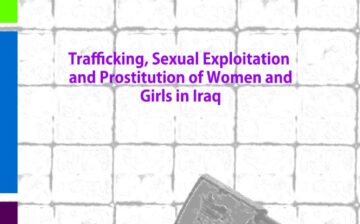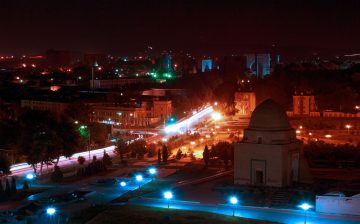Sign up for our news digest
I agree to receive email updates from Human Trafficking Search. I may unsubscribe at any time.
State-sanctioned Trafficking

The Reason for the Late Tax Day this Year
Every year Washington DC celebrates Emancipation Day to commemorate President Lincoln signing the DC Compensated Emancipation Act of 1862 which ended slavery in Washington DC, freed 3,100 people and reimbursed those who had legally owned them and offered the newly freed people money to emigrate.
Part 2: Connections between Chattel Slavery and Modern-Day Human Trafficking
Although the Justice for Chattel Slavery and Anti-trafficking movements have yet to work together on eradicating slavery and the historical imprint of slavery in our society, there is a stark connection between the two movements in the US.
Unaccompanied Migrant Children’s Vulnerability to Human Trafficking in the United States
Recent reports of unaccompanied migrant children arriving in the United States and being subjected to situations of human trafficking and exploitation have caught the attention of Congress and may spur reform. As previously reported in Human Trafficking Search, the influx of unaccompanied children arriving in 2014 and the recent increase in fall 2015 have given way to serious protection concerns in home countries and in the U.S.

It is the New Year: Reflections and Projections
Happy New Year from everyone at Human Trafficking Search! As we bring in the New Year, we hope that you will join us in reflecting on this past year and looking forward to some fresh goals in the US for 2016.
This past year, Human Trafficking Search shared informative weekly blog posts on current events related to human trafficking and the anti-trafficking movement. Our posts covered a variety of topics, from speaking to children about trafficking to trafficking in specific countries, such as Brazil or Nepal. In recap, please enjoy reading some of our most popular posts from the year.

Brazil’s Dual Reaction to Forced Labor
In 1888, Brazil became the last nation in the Western Hemisphere to formally abolish slavery. Over the course of 300 years, an estimated four million Africans were brought to Brazil to work as slaves in sugar plantations and gold mines. Although no longer institutionalized, the tradition of slavery has yet to end in Brazil and still exists in the form of forced labor, debt bondage [and] degrading conditions that violate human rights or overwork that threatens life or health. The 2014 Global Freedom Index estimated that 155,300 people are currently enslaved in Brazil, most of whom are involved in agricultural or mineral production as part of a supply chain for large multinational corporations.

A Slippery Slope for Russia, China and Uzbekistan
The annual US Department of State Trafficking in Persons Report was released earlier this week and its ranking of countries …
